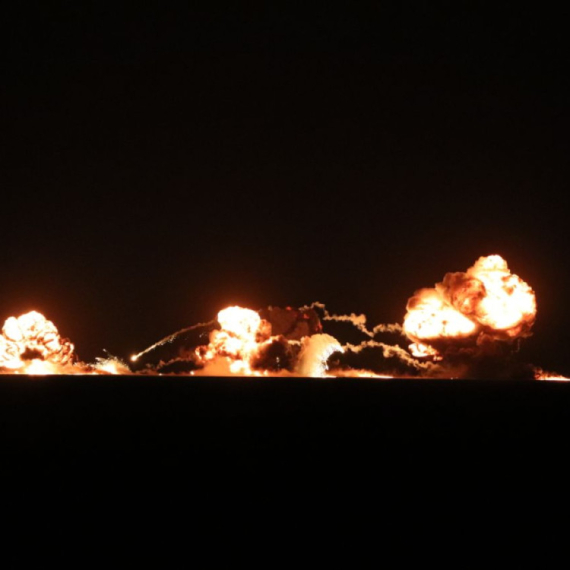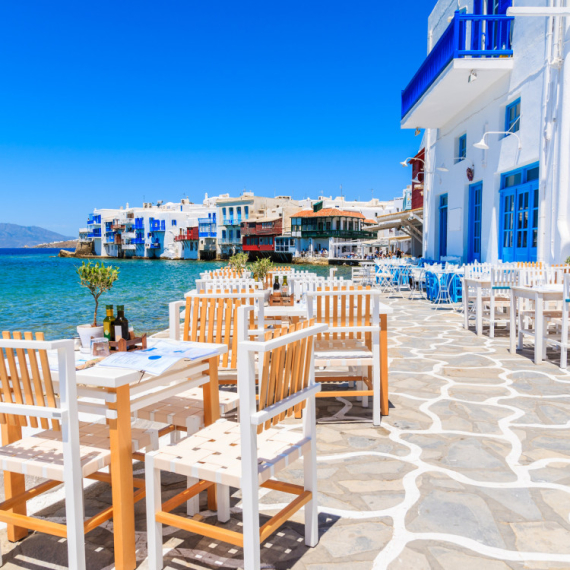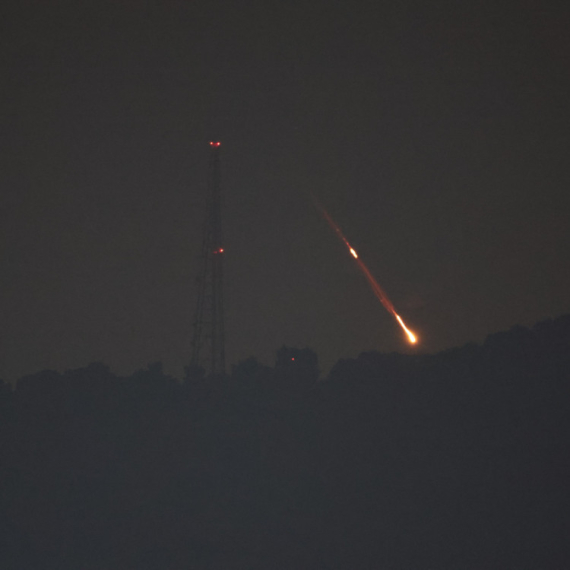Lessons of "Georgian experience"
As Russian officials compare the situations in Georgia and Kosovo, there is no official reaction from Belgrade or Priština.
Tuesday, 12.08.2008.
09:59

As Russian officials compare the situations in Georgia and Kosovo, there is no official reaction from Belgrade or Pristina. Kosovo Ministry State Secretary Oliver Ivanovic, G17 Plus claims that a reaction does exist, in the form a call to all sides to refrain from further violence. Lessons of "Georgian experience" Ivanovic told B92 that the events in South Ossetia were a consequence of unprincipled stances on the part of various countries regarding the independence of Kosovo. “I think that this should be a lesson for us all—that international conflicts cannot be solved by force, violence and violations of international law,” he underlined. “That is the only thing we see as a lesson from the Kosovo situation at this moment in time, but I don’t think that this lesson has been absorbed in the world, and I think there will be more such consequences,” the state secretary ventured. It would be logical for Serbia to use the situation in Georgia in its diplomatic struggle against Kosovo independence. However, in so doing, Belgrade would find itself in a Catch 22: Belgrade would have to support the principle of territorial integrity, and that would lead to conflict with Moscow officials, whose support Belgrade is counting on at the UN Security Council. Dusan Janjic of the Forum for Ethnic Relations says that the impasse in solving the Kosovo question in the Security Council has created the situation in Georgia, which is now coming back to haunt the West. “The importance of Georgia, the Black Sea—especially within Abkhazia and South Ossetia—is strategically a lot greater than Kosovo, but both are cases of regional policies and direct relations between NATO and Russia, and Russia and Washington,” he says. “It will not be possible to settle Kosovo’s final status without Russia and a Russia-NATO-Washington agreement, nor for that matter, the crisis in Caucasus and the Black Sea,” Janjic believes. Officials in Moscow are readily comparing the conflicts in Georgia with what happened in Serbia in 1999 and the events in Kosovo. Former Russian Ambassador to Serbia Aleksandr Alekseyev said that Russia was today coming in for criticism from those who had killed Serbs in 1999. Belgrade is not drawing such parallels however, simply stating that the violence in Georgia must stop. At the same time, Alekseyev's successor in Belgrade, Aleksandr Konuzin, has commented on the crisis in the Caucasus in a statement for Tanjug. The Russian diplomat believes that the developments in South Ossetia should be considered along with other cases of violations of international law and of the United Nations Charter, such as the NATO attack on Serbia in 1999, the invasion on Iraq, and the unilateral proclamation Kosovo's independence. "Instead of seeking a peaceful solution for the problem of South Ossetia, the Georgian side chose to resort to a military method. Such unilateral use of force should be placed in the same order as other illegal unilateral steps such as the bombardment of Serbia, the invasion on Iraq, or the unilateral proclamation of the independence of Kosovo," Konuzin was quoted as saying. "In the media war that is accompanying the conflict in South Ossetia, one can see evident double standards, with which a part of the international community described the situation during the wars in the former Yugoslavia, and the conflict in Kosovo," Konuzin said. Brussels only place Goran Svilanovic says Serbia should see from the Georgia crisis that Brussels is the only place to discuss Kosovo. The former foreign minister told Novi Sad daily Dnevnik that the key decisions regarding Kosovo were taken in Brussels, not Moscow or Washington. He said that the foreign policy that Georgia had pursued over the last ten years had been “unsustainable,” because you cannot be Russia’s neighbor and act as if Russia does not exist, adding that Serbian politicians could learn a lesson from this. “Moscow and Washington will not be able to change the situation in Kosovo, only the EU will,” said Svilanovic, adding that it was time that Serbian politicians realized who their partners were. He said that the conflict in South Ossetia was further confirmation that the UN Security Council was no longer the place to settle such conflicts, adding that Moscow, Washington and Brussels were now those places. Svilanovic said that there could be no parallels drawn between South Ossetia and Kosovo, since the circumstances were different. “If you really want to draw a parallel, then the first for me would be that Georgia’s actions were just as pointless as Serbia’s actions when the police and military tried to bring Kosovo under control,” said the former foreign minister. He said that you could not rule over a people “that do not want you.” “If you have a homogenous national minority on a territory, you cannot preserve that territory through undemocratic means,” Svilanovic stressed.
Lessons of "Georgian experience"
Ivanović told B92 that the events in South Ossetia were a consequence of unprincipled stances on the part of various countries regarding the independence of Kosovo.“I think that this should be a lesson for us all—that international conflicts cannot be solved by force, violence and violations of international law,” he underlined.
“That is the only thing we see as a lesson from the Kosovo situation at this moment in time, but I don’t think that this lesson has been absorbed in the world, and I think there will be more such consequences,” the state secretary ventured.
It would be logical for Serbia to use the situation in Georgia in its diplomatic struggle against Kosovo independence.
However, in so doing, Belgrade would find itself in a Catch 22: Belgrade would have to support the principle of territorial integrity, and that would lead to conflict with Moscow officials, whose support Belgrade is counting on at the UN Security Council.
Dušan Janjić of the Forum for Ethnic Relations says that the impasse in solving the Kosovo question in the Security Council has created the situation in Georgia, which is now coming back to haunt the West.
“The importance of Georgia, the Black Sea—especially within Abkhazia and South Ossetia—is strategically a lot greater than Kosovo, but both are cases of regional policies and direct relations between NATO and Russia, and Russia and Washington,” he says.
“It will not be possible to settle Kosovo’s final status without Russia and a Russia-NATO-Washington agreement, nor for that matter, the crisis in Caucasus and the Black Sea,” Janjić believes.
Officials in Moscow are readily comparing the conflicts in Georgia with what happened in Serbia in 1999 and the events in Kosovo.
Former Russian Ambassador to Serbia Aleksandr Alekseyev said that Russia was today coming in for criticism from those who had killed Serbs in 1999. Belgrade is not drawing such parallels however, simply stating that the violence in Georgia must stop.
At the same time, Alekseyev's successor in Belgrade, Aleksandr Konuzin, has commented on the crisis in the Caucasus in a statement for Tanjug.
The Russian diplomat believes that the developments in South Ossetia should be considered along with other cases of violations of international law and of the United Nations Charter, such as the NATO attack on Serbia in 1999, the invasion on Iraq, and the unilateral proclamation Kosovo's independence.
"Instead of seeking a peaceful solution for the problem of South Ossetia, the Georgian side chose to resort to a military method. Such unilateral use of force should be placed in the same order as other illegal unilateral steps such as the bombardment of Serbia, the invasion on Iraq, or the unilateral proclamation of the independence of Kosovo," Konuzin was quoted as saying.
"In the media war that is accompanying the conflict in South Ossetia, one can see evident double standards, with which a part of the international community described the situation during the wars in the former Yugoslavia, and the conflict in Kosovo," Konuzin said.
Brussels only place
Goran Svilanović says Serbia should see from the Georgia crisis that Brussels is the only place to discuss Kosovo.The former foreign minister told Novi Sad daily Dnevnik that the key decisions regarding Kosovo were taken in Brussels, not Moscow or Washington.
He said that the foreign policy that Georgia had pursued over the last ten years had been “unsustainable,” because you cannot be Russia’s neighbor and act as if Russia does not exist, adding that Serbian politicians could learn a lesson from this.
“Moscow and Washington will not be able to change the situation in Kosovo, only the EU will,” said Svilanović, adding that it was time that Serbian politicians realized who their partners were.
He said that the conflict in South Ossetia was further confirmation that the UN Security Council was no longer the place to settle such conflicts, adding that Moscow, Washington and Brussels were now those places.
Svilanović said that there could be no parallels drawn between South Ossetia and Kosovo, since the circumstances were different.
“If you really want to draw a parallel, then the first for me would be that Georgia’s actions were just as pointless as Serbia’s actions when the police and military tried to bring Kosovo under control,” said the former foreign minister.
He said that you could not rule over a people “that do not want you.”
“If you have a homogenous national minority on a territory, you cannot preserve that territory through undemocratic means,” Svilanović stressed.
















Komentari 34
Pogledaj komentare